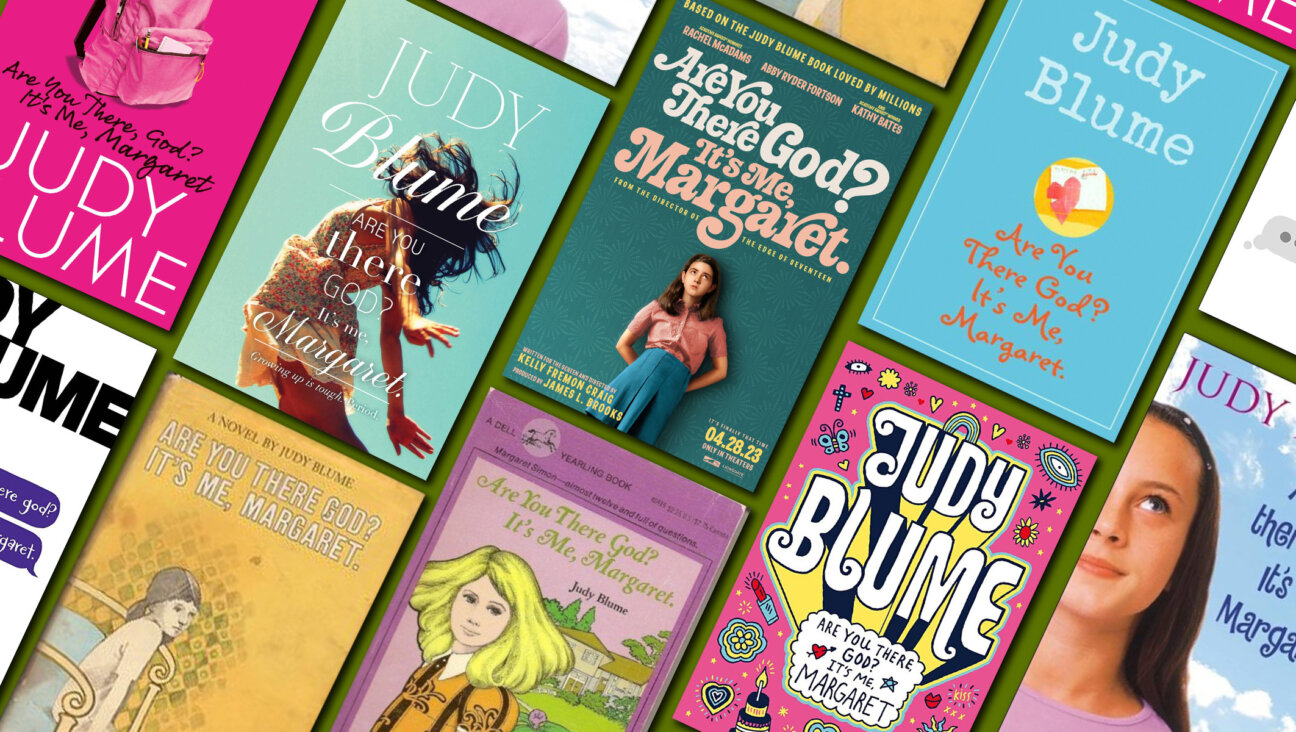Emily Schneider
By Emily Schneider
-

Culture How Judy Blume’s ‘Are You There God? It’s Me, Margaret’ broke taboos around interfaith marriage
The young adult classic, soon to be a movie, was a rare portrayal of an increasingly common reality, writes a kids lit critic
-

Art The Secret Jewish History Of Rosie The Riveter
At the end of World War II, fascism seemed to have met its well-deserved end, a result far from inevitable when the conflict began. The New York Historical Society exhibit “Rockwell, Roosevelt, & the Four Freedoms,” open through September 2, reminds visitors how fragile democracy appeared at the time. While American men served overseas, women’s…
-

Life When Jewish Children’s Books Try To Be Diverse — And Fail
“Imagine a world in which all children can see themselves in the pages of a book,” is the opening salvo of We Need Diverse Books, an organization that makes the case for greater inclusion of marginalized groups and scrutinizes existing books for their failure to recognize the experiences of oppressed people, such as people of…
-

Opinion A Yeshiva U Rabbi Called Feminists ‘Whores.’ They’re Not Backing Down.
There is a famous scene in the movie “Casablanca” in which Renault asks Rick why he came to Casablanca. “I came for the waters,” Rick says. When Renault reminds Rick that Casablanca is in the desert, Rick answers wryly, “I was misinformed.” I thought of this exchange when I read about recent events at YU’s…
-

Life When Men Pray, Women Are Asked To Leave The Room
Separate but unequal is inherently unequal. The Orthodox requirement for separate religious spheres, including for prayer, is understood in the modern Orthodox world not as an exception to this axiom, but as a divinely ordained protection of complementary roles for men and women in Jewish law. The case is closed for disputing the paradox of…
-

Opinion Why do Orthodox women keep getting Harvey Weinstein wrong?
Like so many of us, I have now read many of the accounts of Harvey Weinstein’s alleged victims, as well as the courageous descriptions of assault and harassment by other working women. Predictably, there have been some accusatory or simply obtuse articles suggesting that the women who have come forward have been themselves guilty of…
-

Life Modesty Isn’t About Shells. It’s About Patriarchy.
Upon reading Michelle Honig’s article “Why This Orthodox Layering Trend Has to Stop”, I felt more worked up than I might have expected about a fashion item, albeit an extremely popular one laden with meaning. In her article, Ms. Honig attacks the “Kiki Riki” brand shell, a ubiquitous clothing trend used to ensure modesty for…
-

Life Eight (Jewish) Things You Didn’t Know About Eloise
Eloise, the irrepressible and obnoxious resident of New York’s famed Plaza Hotel, is currently the focus of an exhibit at the New-York Historical Society titled “Eloise at the Museum.” Many admirers of this privileged child dedicated to creative disruption are unaware that her creator, Kay Thompson, was born Catherine Louise (Kitty) Fink in St. Louis,…
Most Popular
- 1

Fast Forward Tucker Carlson calls for stripping citizenship from Americans who served in the Israeli army
- 2

Film & TV The new ‘Superman’ is being called anti-Israel, but does that make it pro-Palestine?
- 3

News Meet the Jews who helped elect Zohran Mamdani
- 4

Opinion This German word explains Trump’s authoritarian impulses — and Hitler’s rise to power
In Case You Missed It
-

Fast Forward Zohran Mamdani reportedly tells business leaders he will ‘discourage’ the phrase ‘globalize the intifada’
-

Fast Forward Mike Huckabee denounces killing of Palestinian-American in the West Bank as ‘terrorist act’
-

Fast Forward Andrew Cuomo lists several Jewish endorsements on his website. But do they still apply?
-

Fast Forward Antisemitic memes fail to disqualify Elon Musk’s ‘MechaHitler’ bot from Department of Defense contract
-
Shop the Forward Store
100% of profits support our journalism







